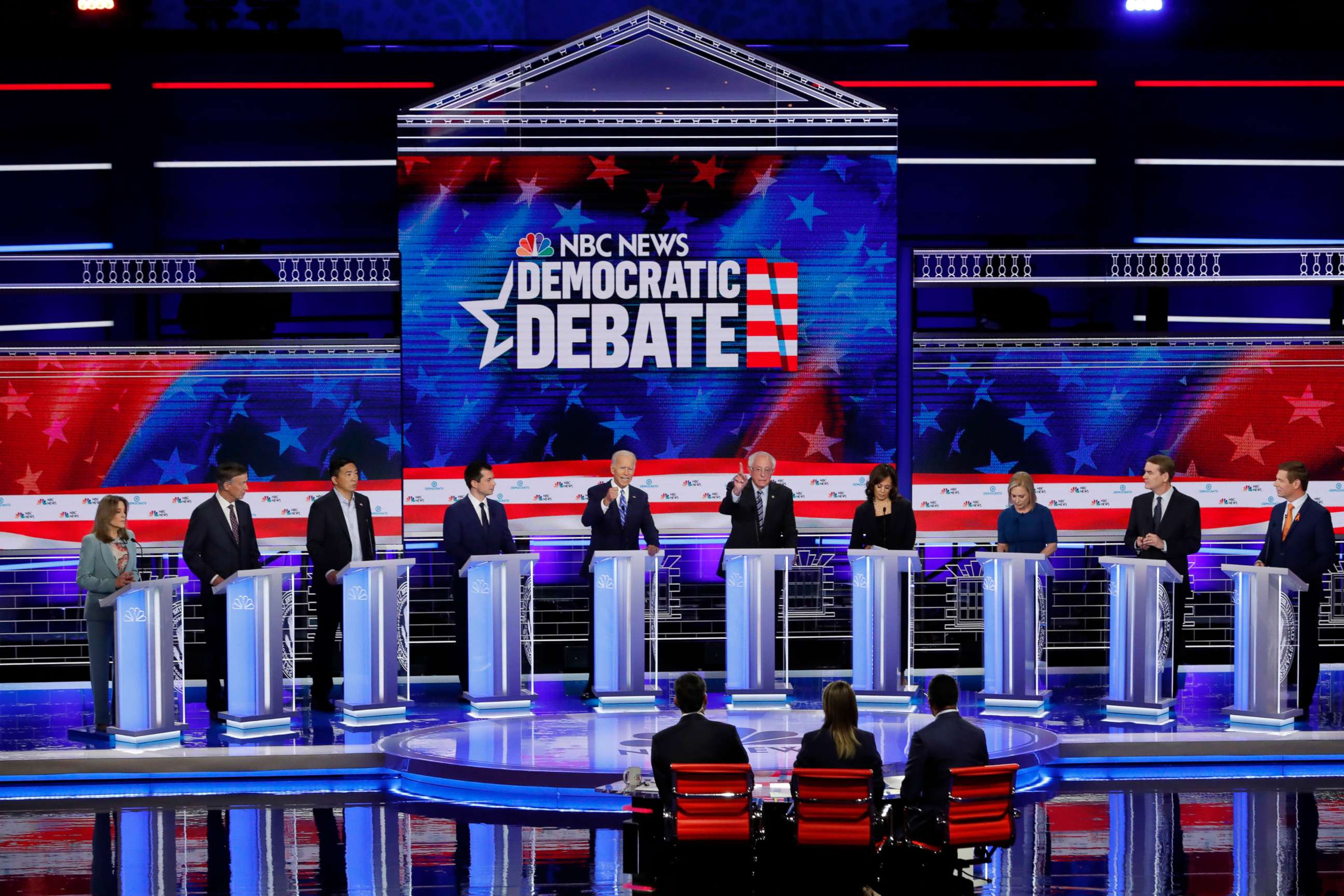Climate experts' top 3 questions for the Democratic candidates
Climate change is among Democratic voters’ top issues.
Climate change is among Democratic voters’ top issues heading into the second presidential debate tonight.
During the first round of Democratic primary debates, four of 10 candidates named climate change as the greatest geopolitical threat, and two of 10 said climate change would be the first issue they tackle as president.
But even then, a total of only 15 minutes across two nights of debates was spent discussing climate issues.
What environmental questions are being overlooked? Here are three questions that climate scholars and experts who spoke with ABC News said reflect their top priorities in understanding each candidate's position on the environment:
Is your plan worth the cost?
Several climate scholars interviewed by ABC News said that any workable plan would have to take into account cost. Republicans have put the price tag for the House Democratic proposal -- called a "Green New Deal" -- at $93 trillion, a number Democrats have challenged as excessive.
Still, an ambitious climate action plan would not be cheap. A 2019 study by Wood Mackenzie, a Scottish-based energy research firm, found that pursuing a Green New Deal-like plan and facilitating a complete transition to renewable energy by 2030 could cost $4.5 trillion.
Advocates of climate action said that new job opportunities and innovation would compensate for the immediate cost. The renewable energy sector employed 11 million people worldwide at the end of 2018, according to the International Renewable Energy Agency’s annual report.
But scholars and experts said that candidates would still have to weigh this cost against the extent of potential new policies’ long-term impact.
Ben Zycher, a scholar with the right-leaning American Enterprise Institute, said Democratic proposals on climate change would have only a negligible impact on rising global temperatures. That raises concerns among many conservatives as to whether it would be worth it. Climate activists, however, counter that the cost of not acting is far larger.
"We have to completely transition away from coal, oil and gas to prevent climate catastrophe," said Ryan Schleeter, a spokesman with Greenpeace USA.
How will you secure bipartisan support for your climate policies?
One major hurdle for climate action is finding bipartisan agreement. While House Democrats, the United Nations (UN) and the scientific community have said that time is running out to drastically reduce emissions and slow warming temperatures, though top officials within the Trump administration have been dismissive of calls to act urgently. Andrew Wheeler, current head of the Environmental Protection Agency (EPA), has said that the Trump administration considers global drinking water quality a more pressing crisis than climate change.

Advocacy groups like Greenpeace and the Sierra Club don't see much middle ground because of what they insist is at stake.
"The overwhelming scientific consensus is that we must move beyond fossil fuels to clean sources of energy in the next few decades to avoid the worst consequences of the climate crisis," Sierra Club officials said in a statement.
How will you engage other countries in working with the U.S.?
After President Donald Trump announced his decision to withdraw from the 2015 Paris Climate Agreement last year, climate scientists worry that America’s leadership stance on the climate front is diminishing.
The U.S. is the second largest polluter, after China, accounting for 15% of the world’s carbon emissions. In order to keep global temperatures within the goals set by the Paris Accord, emissions need to drop 55% by 2030, according to the UN. The U.S., experts say, cannot do that alone.
Samantha Gross, a foreign policy and climate fellow at the left-leaning Brookings Institute, said that what she'd most want to know from Democrats on stage would be how each candidate would reestablish the U.S. as a leader in the climate debate. Democrats who want action, she added, might have to temper their expectations.
"From the left, we can't let perfect be the enemy of good," she said.




